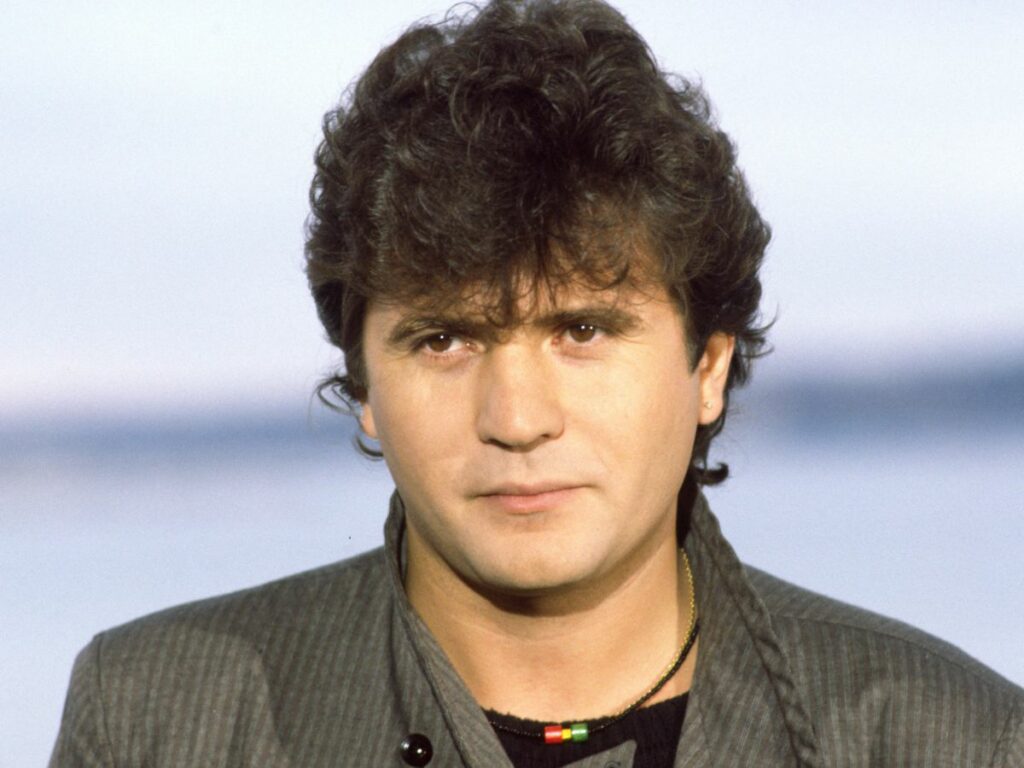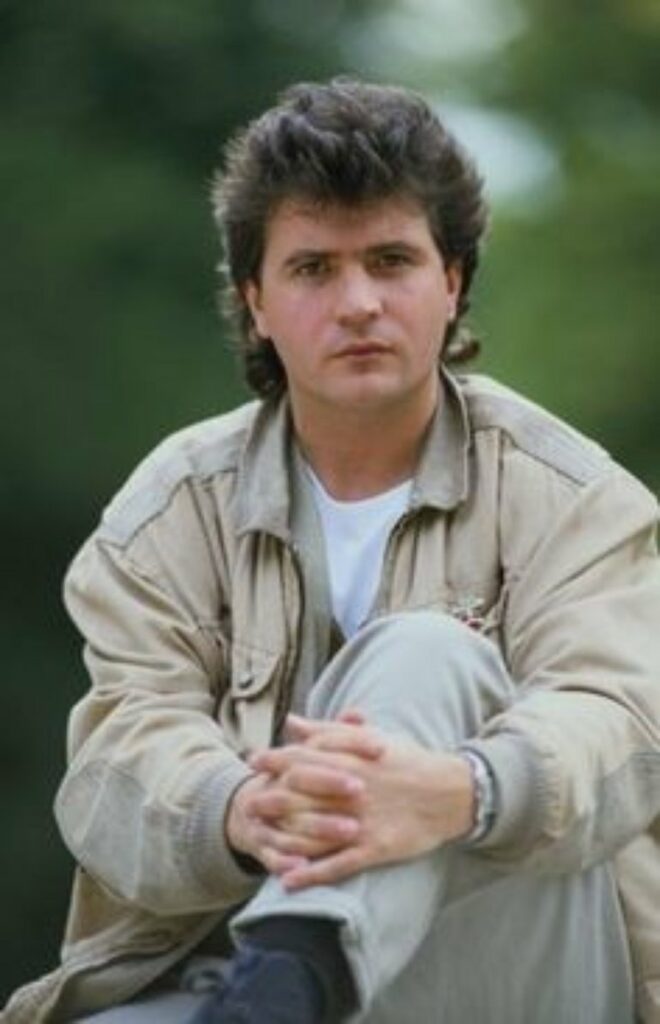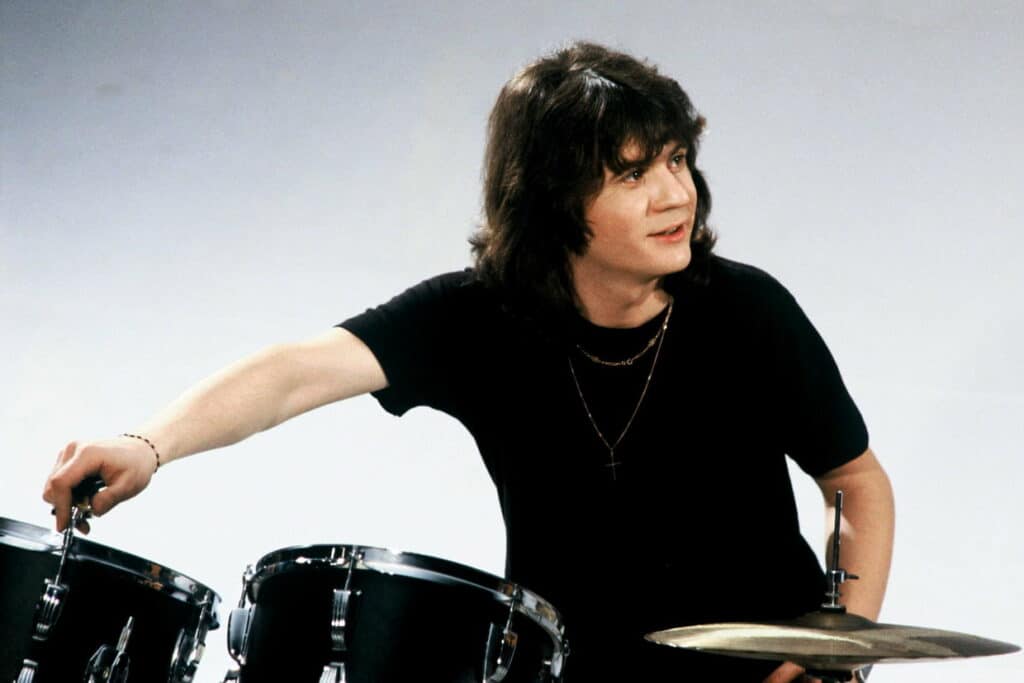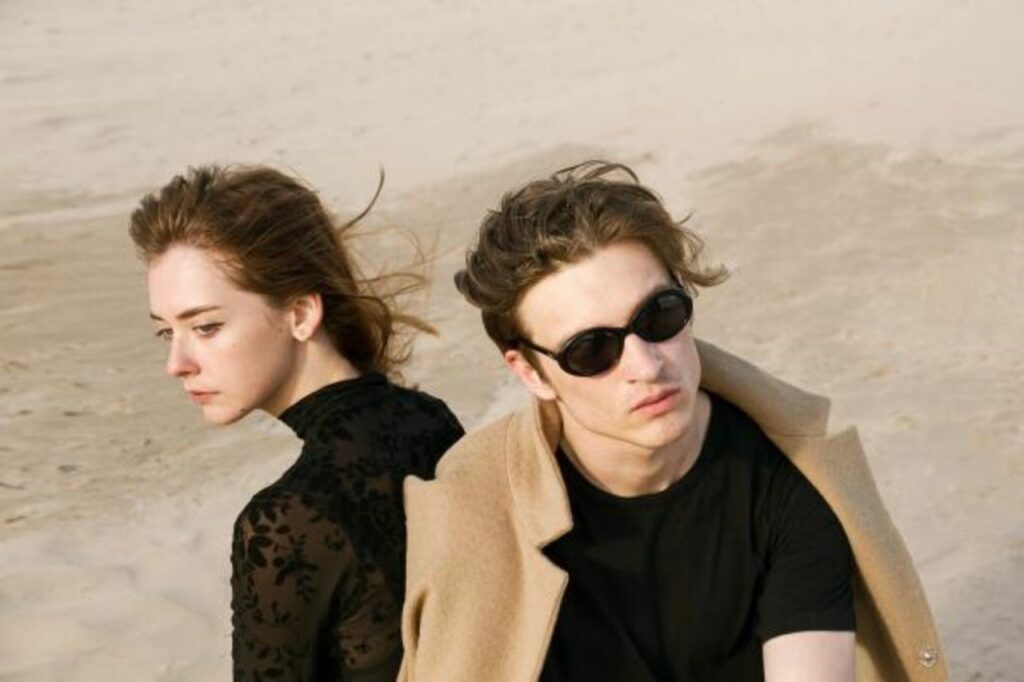Initially, it was clear that Balavoine would not end his life sitting in slippers in front of the TV, surrounded by grandchildren. He was an exceptional personality type who disliked mediocrity and poor quality work.
Like Coluche (the famous French comedian), whose death was also premature, Daniel could not be content with his life's work before the misfortune. He traded his fame for serving people and died in oblivion.

The childhood and youth of Daniel Balavoine
Daniel Balavoine was born on February 5, 1952 in Alencon, in Normandy (northern region of France). The young man spent his childhood between Bordeaux, Biarritz and Dax. When he was 16, the May 1968 student uprising began.
The young man actively participated in it, being in the city of Po, where his family lived. He even wrote with his comrades a small white paper on educational reform. In this general courage and with great enthusiasm, he planned to become a deputy. But his ambitions were quickly called into question, as he became disillusioned when the movement stopped.
The next year he took up music. The guy sang in various bands such as Memphis, Shade's and Réveil. With the latter, he went to Paris in 1970. The result was unsatisfactory and the group disbanded.
Then Daniel Balavoine found a place for himself in the group Présence. She never enjoyed popularity. But with the group, Daniel had the opportunity to give many gala concerts in the province. The Présence team recorded two compositions for Vogue, but the disc went completely unnoticed. The group broke up.
The beginning of the solo career of Daniel Balavoine
In 1972, Balavoine began a solo career and recorded several songs that were not successful. The following year, having turned into a choir singer, he appeared with his brother Guy at an audition for a musical.
He was then hired to sing in a performance of La Révolution Française ("The French Revolution") at the Palais des Sports in Paris. Despite being "promoted" by various artists, the show, whose songs were composed by Claude-Michel Schoenberg, did not find the expected success.
The role of Patrick Juve in the development of Daniel Balavoine
Continuing his career, Daniel became Patrick Juve's choral singer in 1974. There he performed the most difficult parts, because his voice could reach the highest notes.
The singer was very popular at the time and was preparing the Chrysalide album. He gave his student Daniel Balavoine a chance to develop his career. Patrick Juve allowed Balavoine to include his song Couleur D'Automne on his CD.
When Leo Misir (the artistic director of the Barclay record company) heard Balavoine singing on this record, he decided to hire him and asked him to sign a contract. Therefore, he suggested that the singer release a concept album.
In 1975, the opus De Vous à Elle en Passant Par Moi was released. The main theme was women's fate. The theme was not new, but the most universal among others. Success was mixed, but Leo Missier remained enthusiastic and continued to support his protégé.
After a trip to Eastern Europe, in 1977 Daniel Balavoine released his second opus Les Aventures de Simonet Gunther… Stein. Impressed by the Berlin Wall and the consequences of its existence, the singer made it the main theme of the record, which contained the promising composition Lady Marlène. But everything remained so in a narrow circle of listeners.

The rise of the career of Daniel Balavoine
The real career of the performer began when Michel Berger offered him the role of the young con man Johnny Rockfort for the studio recording of the rock opera Starmania. The character suited him well, because Daniel himself was not far from the rebellious habits of the past. The rock opera Starmania was played on stage at the Palais des Congrès in Paris a year after its release.
Balavoine found himself next to a group of French-speaking performers of his generation. Such as France Gall, Diane Dufresne and Fabien Thibault. The success of the production was phenomenal. For Balavoine, this was the first serious success.
In the meantime, he came to the recording studio and wrote a song. It became the first hit of his career, Le Chanteur. Je m'presente, je m'appelle Henri - the first line of this song was sung by almost all of France. In the same album there was another very popular composition Lucie. She only confirmed the enormous popularity of the musician.
He followed up with the album Face Amour, Face Amère. The musicians he met while working with Patrick Juve also contributed to the work.
Balavoine and Francois Mitterrand
Thanks to his first four albums, he rose to the stage of Olympia. The performances lasted three days - from January 31 to February 2, 1980. He showed exceptional energy on stage. Thus, the singer thanked the audience, which has been faithfully listening to his compositions for several years.
The next event made Balavoine a special figure in the field of music. On March 20 of the same year, he participated in one of the editions of the second French TV channel along with Francois Mitterrand. Socialist candidate and future President of the Republic.
Some statements in the debate caused a fit of anger in the singer. Balavoine shouted: "Disappointment of the youth, they no longer believe in French politics!"
Suddenly, the artist became the official representative of the same youth. Balavoine expressed his opinion about the apparent indifference on the part of political leaders towards the new generation.
And oddly enough, his anti-political "cry of the soul" made Balavoine a popular youth singer with a tribune of devoted "fans". Un Autre Monde is the title of his fifth album released in the 1980s. He conquered the charts with his composition with the screaming title Mon Fils Ma Bataille. In the composition, he furiously announced that he was "not a hero."
Sell-out time at the concerts of Daniel Balavoine
Daniel Balavoine performed again on the stage of the Olympia in Paris in March 1981. After he continued to tour the provinces. The concert was recorded and released in September. In 1982 he received the Diamond Prize (Le Prix Diamant de la Chanson Française) for the album Vendeurs de Larmes, recorded in Ibiza, in the Balearic Islands.
In June, he actually “burst” onto the stage of the Sports Palace. It was one of the largest halls in Paris at that time. His show was held under the banner of rock. Popular singer Daniel Balavoine believed that there was only a fictitious barrier between his two genres.
Daniel Balavoine: Paris-Dakar rally
Being a lover of cars, speed and extreme sports, the singer decided to take part in the 83rd edition of the Paris-Dakar rally. Thus, in early January, he took on the role of navigator Thierry Deschamps in a Japanese car. Unfortunately, the races ended fairly quickly after mechanical problems arose.
Taking advantage of this opportunity, he went to explore West Africa. Balavoine returned under great impression. Behind him was the luggage with the material for the new album. Humanistic and sensitive album Loin Des Yeux de L'Occident, unfortunately, was not successful.
During the broadcast of Sept Sur Sept on the first French channel, the singer again began to express his opinion against some veterans. He, of course, then admitted that his words were misinterpreted. Nevertheless, Balavoine experienced the negative consequences of his antics. Especially when several demonstrations took place near the entrance to his concerts.
This did not prevent him from returning to the stage of the Palais des Sports in Paris from 21 to 30 September 1984. This concert was at the heart of his double album.
The following year, Balavoine started the second Paris-Dakar rally and this time ended it almost as a winner.
In July, he performed at a Band Aid concert in Wembley, England to raise funds to fight famine in Ethiopia. An event of the same type took place in France at La Courneuve on October 16, 1985, where many French performers, including Daniel Balavoine, came to support a good cause.

Daniel Balavoine's passion for charity
Subsequently, aware of the humanitarian problems, he founded the association "School of Action" with Michel Berger to combat hunger in Africa. Political views "pushed" him to participate in the action. 30 years ago, he was an active Protestant, and then calmed down and began to more constructive methods of solving problems, if they corresponded to his humanistic ideas.
In 1985, the singer released a new album, Sauver L'amour. For the hit song L'Aziza, he received the SOS Racisme award from Harlem Desir, president of the association.
For a long time, Balavoine planned to organize Operation Water Pumps for Africa, taking advantage of the fame and media coverage of the Paris-Dakar rally. In January 1986, he went to Africa and oversaw the delivery of these same pumps, intended for the local population.
Death of artist Daniel Balavoine
On January 14, during a helicopter flight together with race director Thierry Sabina, a sandstorm arose, and the accident happened very quickly. The helicopter crashed on a dune in Mali with five passengers including Daniel Balavoine.
Since his disappearance, the association has been named after the singer and continues its work, which he started almost alone. Balavoine passed away when he had many projects both in music and in humanitarian work.
His strong personality made some people feel annoyed, but for his audience, the singer's high voice was indispensable.
In 2006, 20 years after his death, Barclay released some of Daniel Balavoine's Balavoine Sans Frontières. Singer-songwriter L'Aziza is unanimously praised for his humanitarian efforts, while his creative career seems a little forgotten.



